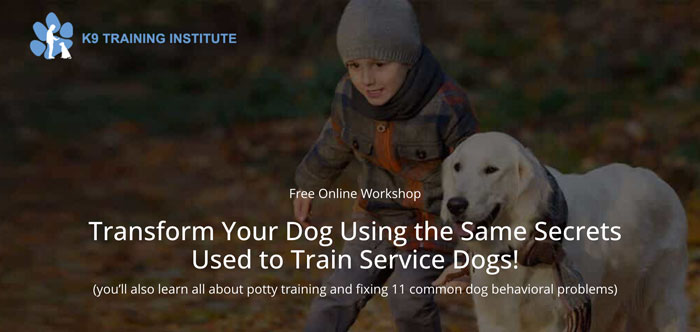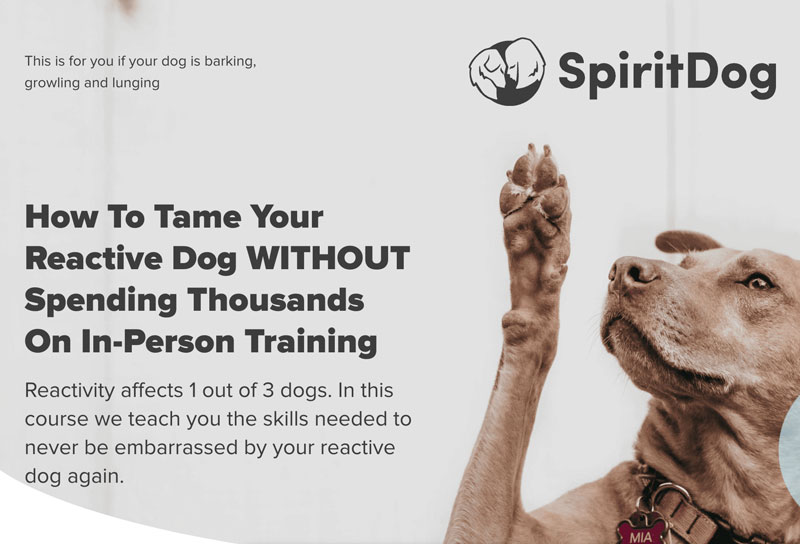
Beagles are known for their boisterous personalities and their tendency to bark excessively. While some barking is normal behavior for dogs, reactive barking can be a problem that needs to be addressed. Beagles may bark at strangers, other dogs, or simply when they are excited. Reactive barking can be a frustrating behavior issue for owners, but with the right strategies and training, it is possible to help your Beagle learn to communicate more effectively without barking excessively. In this article, we will explore 10 effective strategies to help Beagle owners tackle reactive barking and improve their dog’s behavior.
⚠️ Note: While the tips below should get you started, it’s important to realize that your Beagle’s excessive barking is a symptom of reactivity. Consider looking into an online training course that specifically addresses reactivity (we like SpiritDog’s “Tackling Reactivity course or K9 Institute’s Dog Masterclass)
1. Identify and Understand Your Beagle’s Triggers:
The first step to addressing reactive barking is to identify the specific triggers that cause your Beagle to bark. Observe your dog closely to determine what situations or stimuli provoke their barking, such as encountering other dogs, strangers approaching, or loud noises. Once you understand the triggers, you can develop a targeted plan to address the issue.
2. Desensitize Your Beagle to Triggers:
Desensitization is a gradual process that involves exposing your Beagle to their triggers at a comfortable distance, allowing them to become more accustomed to the stimulus without reacting. Over time, you can slowly decrease the distance between your dog and the trigger, always rewarding calm behavior. This process helps your dog become less reactive to the trigger, ultimately reducing their barking.
3. Use Counter-Conditioning with Your Beagle:
Counter-conditioning is another technique that can help change your Beagle’s emotional response to a trigger. By pairing the trigger with something positive, such as treats or toys, your dog can begin to associate the stimulus with a positive experience rather than fear or anxiety. Over time, this can reduce your dog’s reactive barking.
4. Use Positive Reinforcement with Your Beagle:
Reward your Beagle for remaining calm and quiet in situations where they would typically react with barking. Consistently offer praise, treats, or affection when your dog displays appropriate behavior in response to their triggers. This positive reinforcement helps your dog learn that there are better ways to cope with their triggers than barking.
5. Teach Your Beagle the “Quiet” Command:
Train your Beagle to understand and respond to the “quiet” command. When your dog starts barking in response to a trigger, calmly say “quiet” and wait for them to stop. As soon as they are silent, immediately praise and reward them. Repeat this process consistently until your dog associates the command with the desired behavior.
Related: What online dog training program does iHeartDogs recommend for reactive barking?
6. Redirect Your Beagle’s Attention:
When your Beagle begins to bark reactively, try redirecting their attention to a more productive activity. Offer a favorite toy, initiate a training session, or engage in play to refocus their energy. This helps your dog learn that there are alternative ways to react to stimuli, rather than barking.
7. Provide Adequate Exercise and Mental Stimulation for Your Beagle:
A well-exercised and mentally stimulated Beagle is less likely to engage in reactive barking. Ensure your dog receives enough physical activity and mental stimulation daily through walks, play sessions, and interactive toys. This can help reduce pent-up energy and frustration, which can contribute to reactive barking.
8. Create a Calm Environment for Your Beagle:
A chaotic or noisy environment can exacerbate your Beagle’s reactive barking. Create a calm and quiet space for your pet, with a comfortable bed and designated area for their toys. Use calming scents, like lavender or chamomile, and soothing sounds, such as classical music or white noise, to help reduce anxiety and promote relaxation.
9. Manage Your Beagle’s Environment:
While you work on addressing your Beagle’s reactive barking, consider managing their environment to limit exposure to triggers. This may involve using window films to obscure your dog’s view of passersby, creating a designated “safe space” for your dog to retreat to, or using baby gates to restrict access to areas with high trigger exposure. Managing your dog’s environment can help reduce their reactive barking while you work on implementing other strategies.
10. Try an Online Dog Reactivity Training Course
If your Beagle’s reactive barking continues despite your efforts, consider consulting with a professional dog trainer or behaviorist.
2 online dog training programs we like are:
1. SpiritDog’s “Tacking Reactivity” Course
The SpiritDog Tackling Reactivity Course is an online training program designed to help dog owners address their dog’s reactive barking without the need for expensive in-person training. The course aims to help owners understand their dog’s triggers and teaches techniques to calm and accommodate reactive dogs. Developed by experienced dog trainer Steffi Trott, the program offers video lessons, instructional PDFs, quizzes, and access to trainers for support.
2. K9 Training Institute’s “Dog Masterclass”
More than just an obedience course, this more comprehensive training course tackles any behavior problem you might face with your dog.
10 Reasons Why a Beagle Might Be Reactive Barking
- Territorial behavior – beagles can be protective of their space and might bark at people or other animals that they see as a threat.
- Separation anxiety – beagles can develop anxiety when separated from their owners or when left alone for extended periods, which may lead to barking.
- Fear – beagles might bark when they feel threatened or scared, such as encountering new people or animals.
- Boredom – beagles are an active breed and need plenty of mental and physical stimulation. If they become bored, they may bark to entertain themselves.
- Attention-seeking – beagles are social dogs that crave attention and may bark to get their owners’ attention.
- Excitement – beagles may bark when they are overstimulated, such as during playtime or when anticipating a walk.
- Hunting instincts – beagles are hunting dogs and might bark when they pick up a scent or see something they perceive as prey.
- Lack of training – if not properly trained, beagles might not understand what behavior is expected of them and may bark excessively.
- Medical issues – certain medical conditions, such as cognitive dysfunction or hearing loss, can cause beagles to bark more than usual.
- Genetics – some beagles may have a genetic predisposition to barking and may require specialized training to control their barking behavior.
In conclusion, excessive barking in Beagles can be a frustrating issue for owners, but it is important to understand that it is a natural behavior that can be addressed with proper training and management. The reasons for reactive barking can vary widely, from boredom and anxiety to genetic predispositions. However, by implementing effective strategies, owners can help their Beagles overcome their reactive barking habits and enjoy a more peaceful and stress-free environment. Whether it’s through proper socialization, training, or environmental enrichment, taking a proactive approach to address reactive barking in Beagles can result in a happier and more harmonious relationship between owners and their furry companions.
NEXT UP: Can an Online Training Course Help Stop My Beagle’s Barking?



 Toledo, United States.
Toledo, United States.
